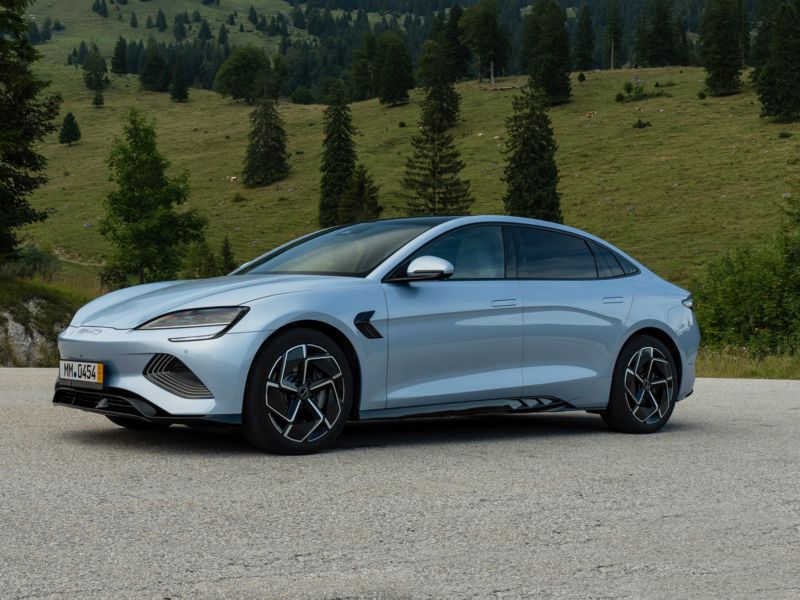
BYD
Seal (2023-)
Full Access first month £5, then £11.99 per month, cancel at any time

Plenty of new car brands have emerged in the UK over the past few years, with one of the largest being BYD – and it's got Tesla firmly in its sights. Both focus on electric vehicles (EVs) and are reliant on Chinese manufacturing and technology. But what sets them apart and which brand should you choose?
We've lab-tested numerous cars from BYD and Tesla, rating them for everything from performance to practicality. Here, we take a close look at the two brands, including how their cars have fared in our lab tests, Euro NCAP crash tests and more.
Best electric cars for 2025: discover the models that aced our tough lab tests
The car division of BYD was founded in 2003 and launched its first model way back in 2005, but it only began selling cars in Europe in 2020.
BYD is based in China, and many of its factories are located there, although it has other manufacturing facilities in India and Thailand, with others in Hungary and Turkey currently under construction.
The BYD brand has seen rapid growth in sales and model lines, with six models currently offered in the UK.
Tesla was founded in 2003, and its first car - the Lotus-based Roadster - went into production in 2008.
It's based in the USA but has factories in China, Germany and the USA. It currently offers two mainstream cars in the UK: the Model 3 and the Model Y, with the latter being the world’s bestselling EV in 2024.
We’ve lab-tested a range of BYD and Tesla cars. Here are the key details for those that are available to buy new.
| BYD Dolphin | BYD Atto 3 | BYD Seal | Tesla Model 3 | Tesla Model Y | |
| Price (from) | £24,713 | £35,693 | £43,292 | £39,980 | £44,980 |
| Battery size range (kWh) | 44.9 - 60.4 | 60.5 | 82.5 | 58 - 79 | 79 |
| Claimed range (miles) | 195 - 265 | 260 | 323 - 354 | 323 - 436 | 319 - 373 |
| Maximum charging speeds AC/DC (kW) | 11/150 | 11/150 | 11/150 | 11/170 | 11/210 |
| Length (metres) | 4.38 | 4.46 | 4.8 | 4.69 - 4.72 | 4.75 |
| Width (metres) | 2.02 | 2.07 | 2.15 | 2.09 | 2.13 |
Boot space (litres) | 310 | 355 | 325 | 385 - 415 | 420 |
Of all their cars, it’s the BYD Seal and Tesla Model 3 that have most in common, with both being large saloon EVs.
While the Model 3 was launched back in 2019 (and heavily updated in 2023), the Seal is a relative newcomer, having first gone on sale in 2023. As well as looking similar, both come with a lot of equipment as standard, long claimed driving ranges (both start at 323 miles) and touchscreen-heavy interiors.
There are some noticeable differences, though. Our lab tests revealed the Model 3 can be a very efficient EV, but the same can’t be said of the Seal we tested.
The Seal also proved to be less spacious for passengers and luggage in our lab tests than the Model 3. The cheapest Seal also costs £3,000 more than the entry-level Model 3.
However, we think the Seal’s cabin makes a better impression than the Tesla Model 3’s, as it has impressive quality throughout. Our lab tests also revealed the Seal to have a slightly shorter braking distance than the Model 3.
Some people will find the removal of the traditional indicator stalk on the latest Model 3 a step too far; Tesla chose to replace it with buttons on the steering wheel.
Our reviews of each car reveal additional pros and cons, along with lab-tested electric range and more.
Which? members can log in to read our full reviews. Alternatively, join Which? today to get instant access.

Seal (2023-)
Full Access first month £5, then £11.99 per month, cancel at any time
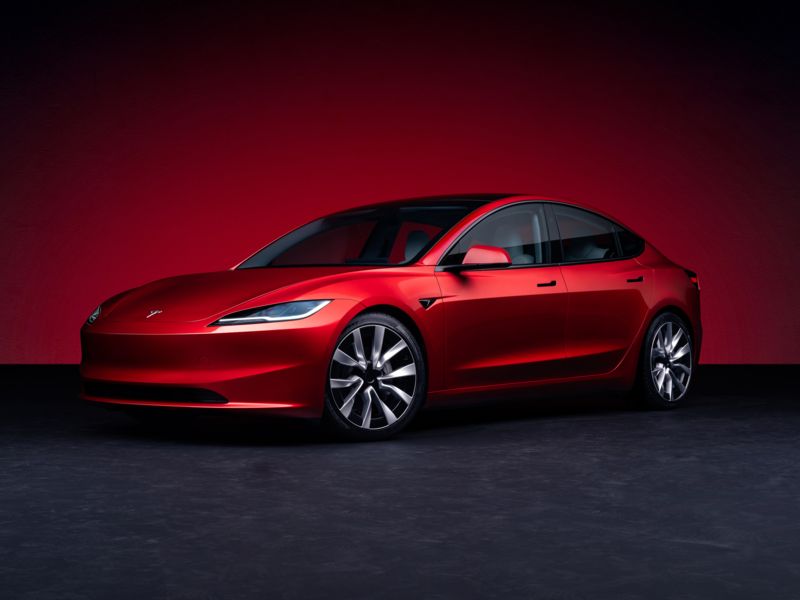
Model 3 (2019-)
Full Access first month £5, then £11.99 per month, cancel at any time
Having taken its Model X off sale last year, Tesla has only one other car available to buy new in the UK: the Model Y. In terms of the cars we've lab-tested, its closest BYD rival is the Atto 3.
The Model Y is a large SUV, but the Atto 3 is a much smaller car. Like the two brands' other cars, both feature large touchscreens, have decent safety credentials and are well equipped.
However, our lab tests found that the Atto 3 doesn’t have a very long driving range and it takes a long time to charge compared to the Model Y. We also felt the Atto wasn't as good to drive as the Model Y.
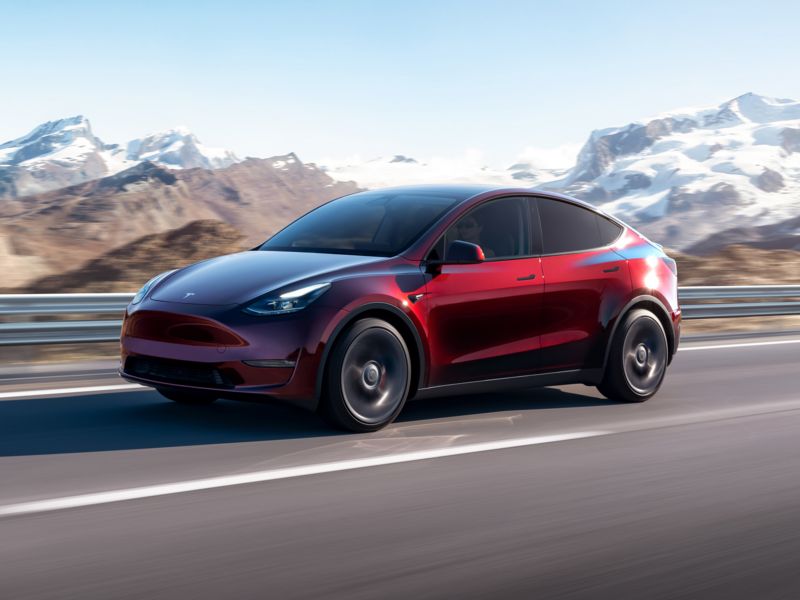
Model Y (2022-)
Full Access first month £5, then £11.99 per month, cancel at any time
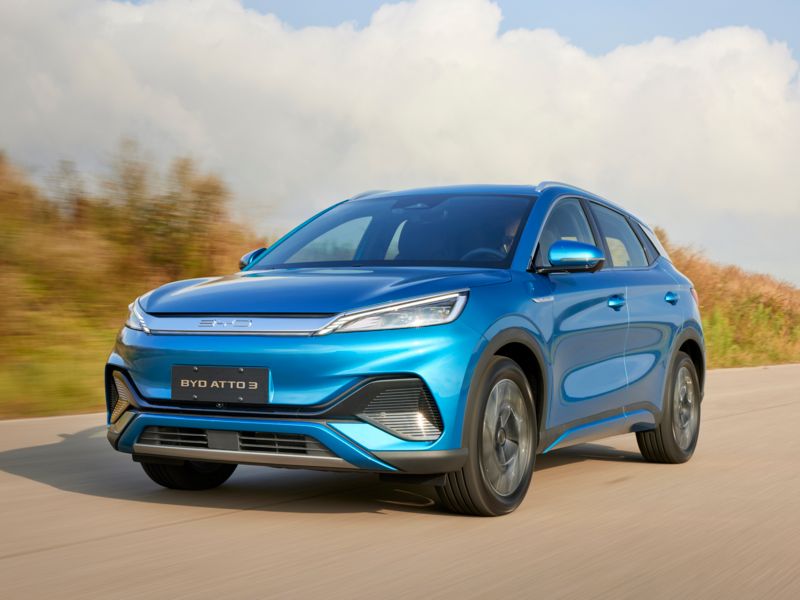
Atto 3 (2023-)
Full Access first month £5, then £11.99 per month, cancel at any time
BYD’s Sealion 7, which was introduced earlier this year, is a more direct rival to the Model Y.
Ahead of our full lab test of the Sealion, we took it on an extended test drive and found it to be spacious, serene and stable to drive (although we weren't fans of the hard-to-configure safety kit). See what we thought of it in our BYD Sealion 7 first drive review.

When it comes to reliability, it's fair to say Tesla’s record is mixed, with our latest car survey revealing that some models are more dependable than others.
At a brand level, our survey suggests that newer Tesla cars (those aged 0-4 years) are most commonly affected by fuel system component faults, while older cars (aged 5-9 years) are more affected by suspension faults.
You can get detailed reliability information for Tesla by using the reliability lookup tool in our guide to the most reliable cars and by reading our in-depth reviews of the Tesla Model 3 and Tesla Model Y.
We currently don’t have enough information about BYD’s cars to rate them for reliability, but we expect this to change soon as BYD introduces more models to the UK.

Tell us about your car and be in with a chance of winning £2,500 (T&Cs apply).
Take part nowAll BYD cars come with a 6-year/93,750-mile warranty in the UK, which is significantly longer than most other car brands (although the mileage term is lower year-for-year).
Tesla cars registered from 2024 onwards come with a 4-year/60,000-mile warranty.
As with most EV brands, both offer 8-year battery warranties (with a minimum 70% battery retention). All BYD batteries are covered for 125,000 miles, while the mileage limit for Tesla cars is 100,000 to 150,000 miles, depending on model and version.

BYD and Tesla cars perform well for safety, with every model tested by Euro NCAP receiving five stars out of five. However, Euro NCAP found more issues with the driver assistance technology (mainly related to the driver monitoring systems) in BYD’s cars than Tesla’s.
Both also offer a lot of safety kit as standard. Even BYD’s cheapest car (the BYD Dolphin hatchback) comes with adaptive cruise control, lane-keep assist, blind spot monitors, front and rear cross-traffic alerts and lots of airbags.
The cheapest Tesla (the Model 3) has a similar level of standard safety kit but doesn’t have cross-traffic alerts. Lane-charge assist technology is part of the Enhanced Autopilot pack.
So far in 2025, Tesla is outselling BYD in the UK, although its year-on-year sales growth is modest at 6%, compared to BYD’s 625% over the same period.
In terms of the number of cars sold, BYD has registered 9,271 cars in the UK so far in 2025 (compared to 1,278 for the same period in 2024), while Tesla has registered 12,474 cars so far this year.
In fact, BYD’s current UK market share of 1.6% is above that of long-established brands like Honda and Seat (1.5% and 1.2% respectively) and is the same as Dacia’s.

It's also worth noting that in our latest car survey, the Tesla Model 3 was the highest-scoring electric car for customer satisfaction. So, despite some reliability issues, owners still clearly love driving their Model 3s.
As with reliability, we didn't receive enough responses from BYD owners to generate customer satisfaction scores for the brand.
Ultimately, whether you choose BYD or Tesla depends on what you’re looking for in a car. But when comparing the BYD Seal and Tesla Model 3, the latter benefits from a lower list price, better efficiency and a more spacious interior.
At a brand level, it's worth knowing that Tesla cars are sold at fixed prices through an ‘agency’ model (meaning you can only order new cars from Tesla directly). BYD cars are typically available from traditional dealers that have the flexibility to offer discounts, so - depending on current offers and your negotiation skills - you might be able to secure a good deal.
And while the mixed reliability record of Tesla’s cars is a concern, the fact BYD is relatively new to the UK means we don't yet have a reliability score for its cars at all, so it's hard to make a call on this at the moment.
If you’re thinking of buying a Model Y, it’s worth noting that it was facelifted for 2025 and you may want to wait for our updated Tesla Model Y review before buying, along with our full review of the BYD Sealion 7 – both of which are coming soon.
Whether you opt for Tesla or BYD, be sure to read our full reviews before making your mind up, as each car has its own pros and cons.

Seal (2023-)
Full Access first month £5, then £11.99 per month, cancel at any time

Dolphin (2023-)
Full Access first month £5, then £11.99 per month, cancel at any time

Atto 3 (2023-)
Full Access first month £5, then £11.99 per month, cancel at any time

Model 3 (2019-)
Full Access first month £5, then £11.99 per month, cancel at any time

Model Y (2022-)
Full Access first month £5, then £11.99 per month, cancel at any time
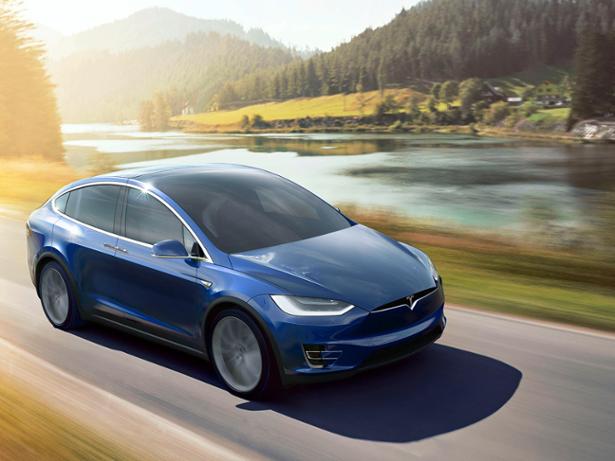
Model X (2016-2024)
Full Access first month £5, then £11.99 per month, cancel at any time
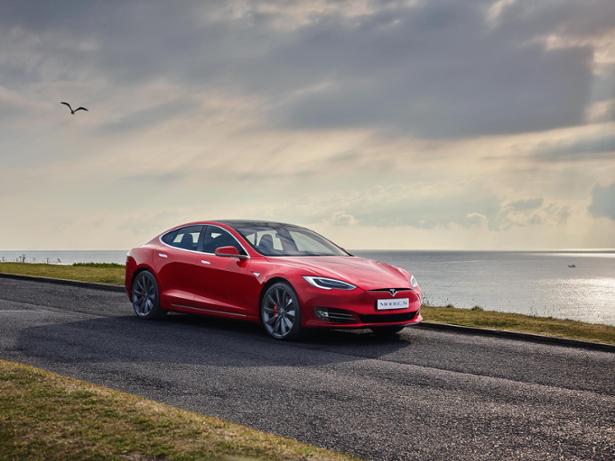
Model S (2013-2024)
Full Access first month £5, then £11.99 per month, cancel at any time
Drive smarter and cut costs using our expert advice. Get our Cars newsletter – it's free monthly